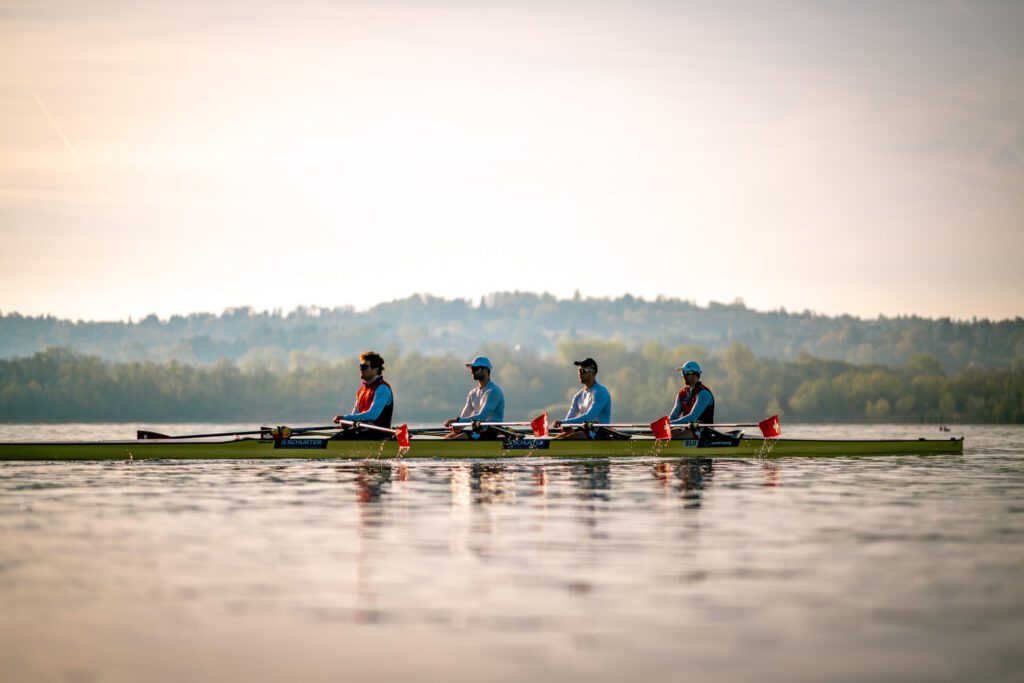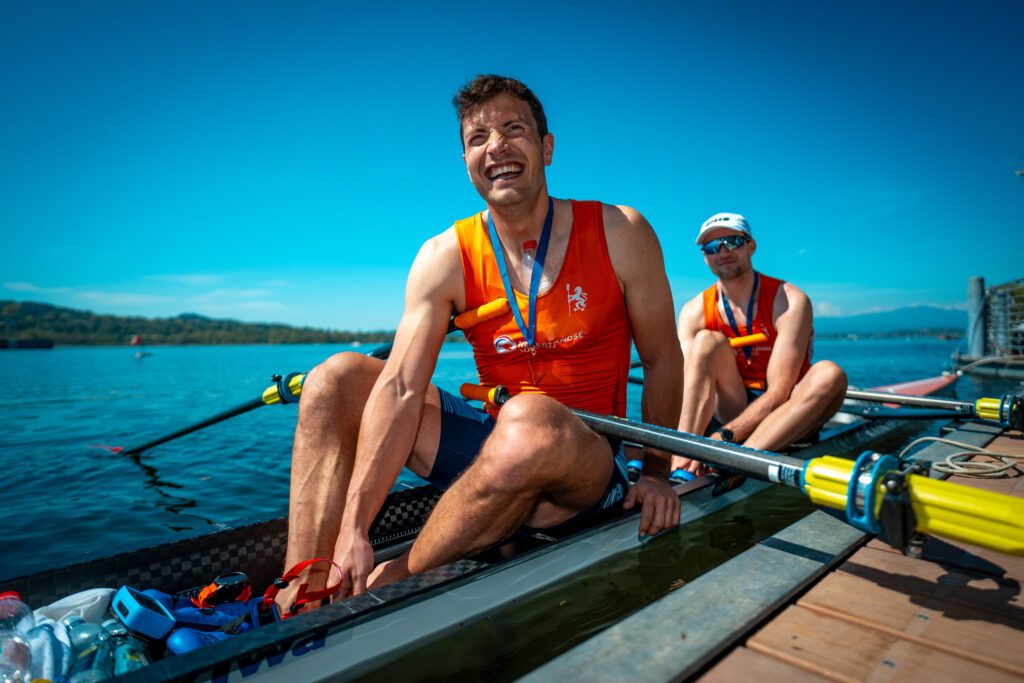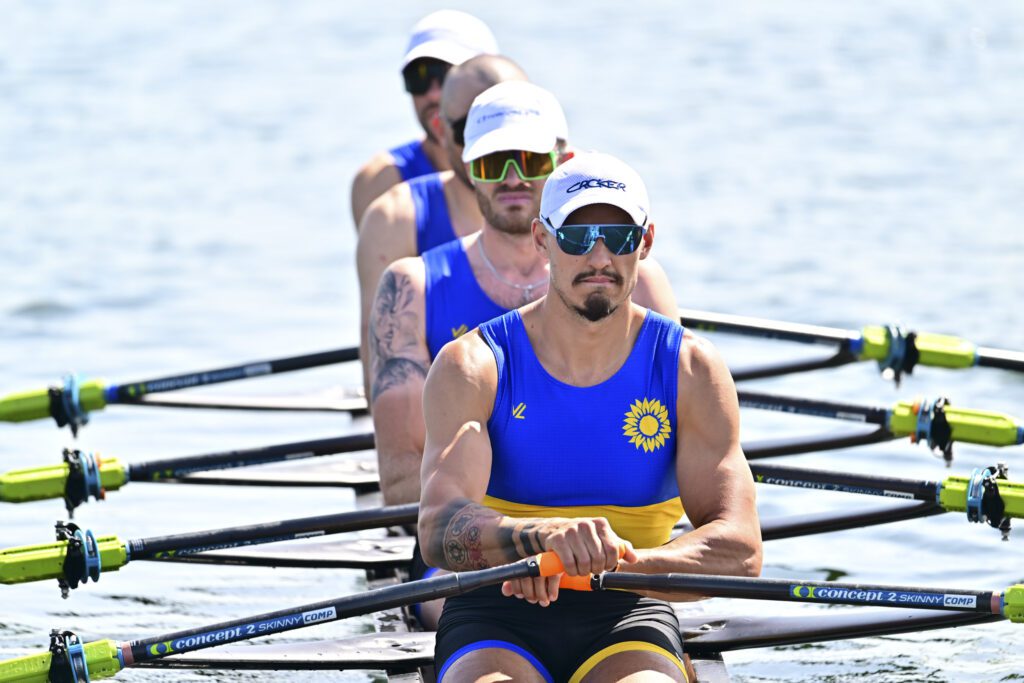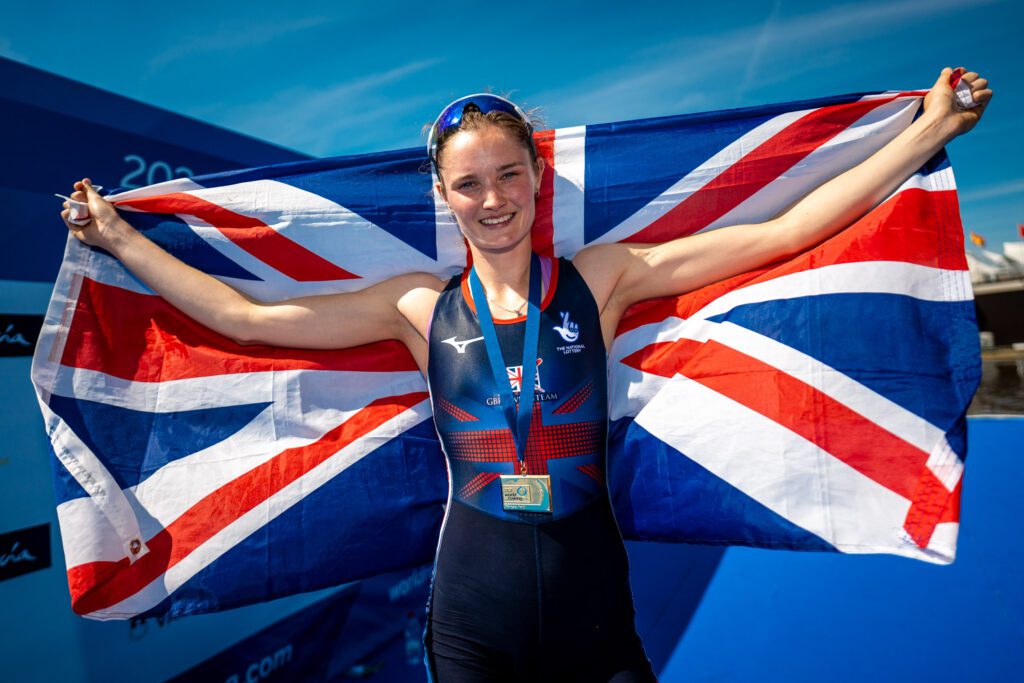After ten years coaching the University of California men’s team, Mike Teti returned to top flite eights racing in 2017, coaching the US M8+ to a world championship silver medal on home water in Sarasota, Florida. Martin Cross catches up with Teti here in late 2017 to look back on his career, the 2017 worlds campaign and his decision to leave Cal and return to the national team.
Mike, let’s talk about the consistency in your coaching over the last couple of decades. What things remain the same in your coaching now as in 1997?
For me the one thing that I’ve always done is to focus on quality over quantity. I’ve never subscribed to the: ‘3 sessions a day, 21 workouts per week’ – it’s not that simple for me. Look, no one I know got into rowing because they wanted to go to the Olympics. They did it because it was fun and a cool thing to do. So there has to be some element of fun within the training that we do. Especially because some of the workouts we do are by their nature monotonous. Every once in a while at Cal we’ll throw out a football. In the past we’ve done mixed crews with the women’s squad.
How did that play out with the US eight this summer?
I can pick out some consistent factors. Not a single guy missed practice, got sick or got injured. We never did more than nine work outs a week – because I didn’t want to risk injury. We always had Sunday off. And that schedule has been fairly typical of all the international teams I’ve had. Maybe we might have done 10 sessions with a few boats. But that’s it. And finally, all the work we did was on the water. There were no ergs or gym sessions.
You can’t be serious?
This summer, it was clear that our limiting factor was our skill in the boat. So we didn’t row the erg or lift weights. Don’t get me wrong. I’m a big believer in those things. But their skills weren’t great. So every single work out; we rowed.
“Back in the late 90’s I believed in the erg … Now I look for boat movers.”
Mike Teti
So what were you trying to change?
I really believe that in an eight the first third of the drive is everything. How you take the water is absolutely crucial. I’m so impressed with the German eight. It’s soothing to watch them row. It almost looks like their finish is a formality. I’ve always stressed the importance of how you take the front end. If you get that right it creates a sense of lightness all the way through the boat.
When the guys first got together this summer, the good part was that they were aggressive. But all the work was being done in the second half of the stroke. So they were going hard but not getting much out of the boat. To start off with, we rowed every single practice with feet out. What happens when you do that, is that the rowers’ emphasis changes from the finish and gets put onto the front end.
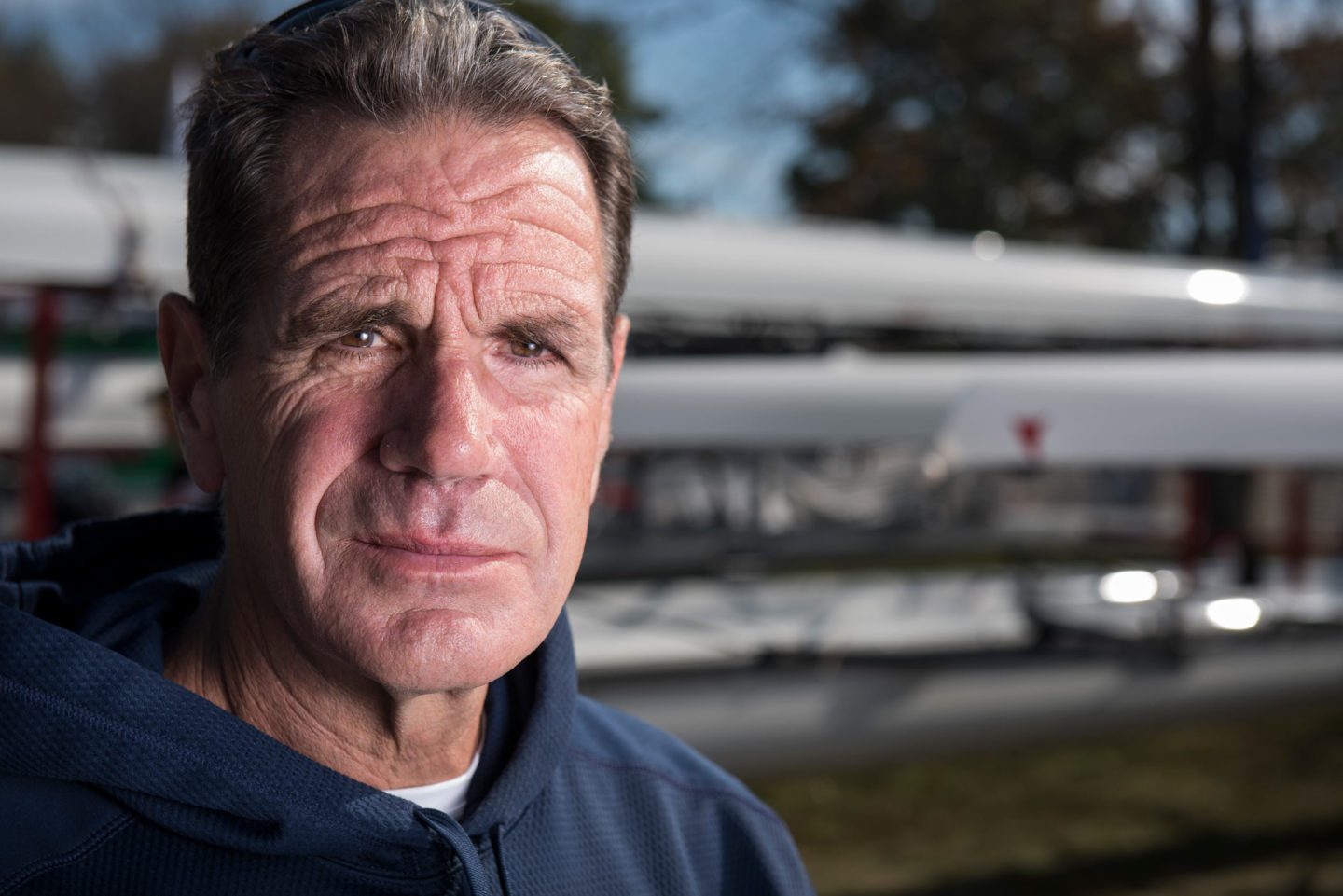
Photo Mike Teti
Credit Benedict Tufnell
So you always knew you were going to work on that?
I look at the limiting factors of a crew and think of all those things: what is it that I could have the most impact with? You’ve got to go for the low hanging fruit first. That’s why I started with feet out.
I loved being around my mentor Kris Korzeniowski and my former athlete Bryan Volpenhein. They were a huge help. And the other thing I did was to bring in other coaches who subscribed to that view of rowing; Steve Gladstone at Yale – who’ve had a fantastic season. Charley Butt at Harvard and Kris Kerber – who’s been doing great things with lightweights at Cornell. Those guys do a lot of front-end stuff. It was great having them help out. I would give them the megaphone, they would coach and I would just listen.
How did that work?
When the boat started to get better the guys would start to buy in to what we were doing. That’s really important. As long as rowers are improving they will buy in. When thy cease to improve, their motivation becomes a problem. We had a great improvement profile this summer, especially during the world championships. Our best paddle was on the Saturday before the final. We were getting stability lightness and speed; before that our best session was the Friday and before that, the row we did on Thursday.
So you had a great run-in to the championships?
The US eight really benefitted from two things. The first was that we were a small group. Those guys were all we had. So we got on with it and developed close relationships. The second factor was that the lateness of the world championships benefitted us. That gave us the time to improve from when we started back in June right up to the end of September. With four weeks to go, the eight was very consistent. As a rule I don’t have any meetings. There was an exception to this though. I had a meeting two nights before the final. Because I wanted them to know how much fun I’d had coaching them.
You must have taken a lot of pleasure from their result?
What I’m most happy about is not that they won a silver medal but they had three good races. In the final, they lost to the better boat. We had a good heat. We achieved what we wanted to achieve in the ‘rep’. When it came to the final we had a really good race. During the season, all of those eights in the final had rowed great pieces. We only got silver by a small margin – we started our lift a little bit early to get our bow out in front and the Italians were coming back fast. In fact, we were only 8/10ths out of 4th place.
What about the inspirational element? That was always such a strong theme in your coaching.
I’m conscious of that as well so the night before the final I knew Chris Ahrens [Olympic champion and stroke of the 97-99 US gold medal eights] was in town. I wanted him to come and talk to these guys. I didn’t know what he was going to say. But I thought it would be useful. Chris was from Princeton and there were two Princeton guys in the eight. Afterwards, I found out he spoke about his experience in ’97 when the eight was 3rd in the heat, 2nd in the rep and won the final. I know they found it inspirational. When you find that inspiration, it enables you to get more out of yourself than you think you are capable of.
So what is it that’s changed in your coaching Mike?
Back in the late 90’s I believed in the erg. I would do everything in my power to get the strongest guys in the boat. Now I look for boat movers. Our Athens boat certainly wasn’t the strongest. But it was the fastest. It was the same going forward. And I think that’s what the Germans have. I don’t know those guys. But hey they don’t have the strongest guys and they are certainly moving the boat. So now I want the best boat movers. Of course if you’ve got someone like ‘Matty’ Pinsent who’s a strong guy as well as being a good boat mover; that’s the best combination.
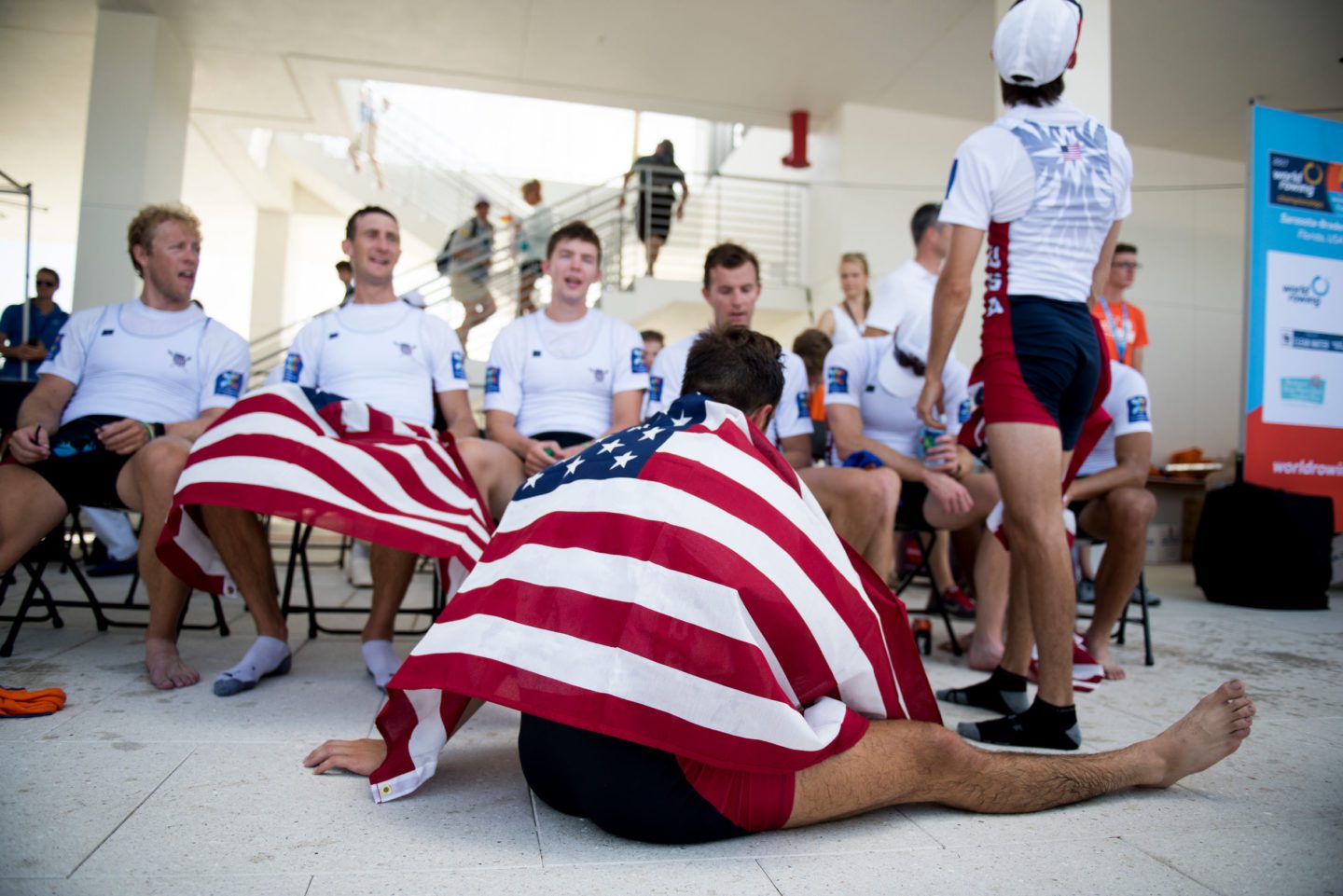
Photo US M8+ in Sarasota, Florida in 2017
Credit Benedict Tufnell
That sounds like quite a conversion – what else?
I’m now much more aware of the way I communicate to my athletes. There was one day – maybe in ‘05 or ’06. I was out coaching and trying to get my crew to row a sharper catch. I was saying it in a way that I guess every other coach must have tried. But it just wasn’t working. Eventually I said: ‘OK stop the boat. If you can’t show me a sharper catch, then show me a slower catch’. Then, when they rowed, I saw this really patient direct catch, which looked like the sharper pick-up I wanted. Then, I went a step further and asked if they could row with a ‘slow finish’ as well. All of a sudden I saw the boat started running like crazy. That day forward I became very conscious of word association. Now, I can say something to try and get them to move in a particular way but if it’s not getting through to them, I know I have to say something different – in language they can relate to.
So does that mean you think you’re a better coach now?
Hopefully. But if you want to check that, you’ll have to ask the athletes. There’s no doubt that their expectations from a coach are different now – especially with so much about different ways of rowing, or coaching on social media. You have to be prepared to adapt your style. And I’m aware of my shortcomings in some areas. For example, I need to be more up to date with technology. This summer we had the Peach telemetry system on the boat. Its workings have to be explained to me 27 times. In some ways it’s hard for me to change because at heart I want to be this American ‘mutt’ who wants to inspire their crews to race hard. That’s what’s natural to me. But if you want today’s crews to go fast, you have to have a different approach. Everything is tighter at the top. Look at women’s eights. Have you ever seen six crews in that event within a length of each other?
And the eight is still the boat closest to your heart?
In the US, kids like to row the eight. It’s in our DNA. In New Zealand it’s rugby. In Canada it’s ice hockey. For the US rowers, it’s the eight. That’s why we attract so many international kids. It’s not just the scholarships. It’s fun! There are so many different nationalities in the programme to get to know. They row the eight and they have fun. That’s the attraction. I have this Slovenian kid who’s a freshman. Back in Slovenia he just rows the single. Here, I asked him: ‘Hey how’s it going?’ He said: ‘It’s going great. I’m having so much fun. I’m rowing with my friends. The eight is fast, loud and fun!’
When you go to watch the worlds, no one misses the eight. There was one occasion in rowing that I remember vividly. It was in Gifu in 2005. I was at the starting line for the heat of the men’s eight and I noticed Jurgen Grobler [The British Chief Coach] on his bike next to me. I said: Jurgen, you’re coaching the four – not the eight. Why are you up here?’ He took one look at me, then the eights on the start and said: ‘Mike this is rowing’.
And your guys at Cal must appreciate that?
We have super talented guys at Cal. I actually got to row in the Cal boat [at bow] on the Friday before the Head of the Charles and I thought wow! This is a pretty good boat. If they have a good piece they could win this event. They are a great bunch of guys who get along really well. To have an epic race you have to find something to inspire them. This year, it was the last year in the Cal eight for Natan [Wegrzycki-Szymczyk] and Maarten [Mackovic]. The crew loves those guys so they were like: ‘We’re going to win this race for them. So put your seat belt on and enjoy the ride – cos we are goin!’
This article first appeared in

